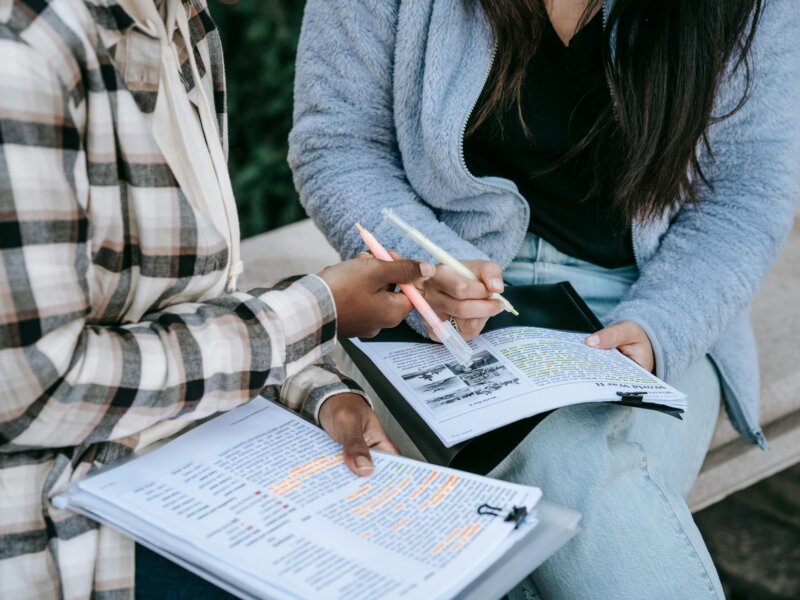
Once you decide to embark on your PhD journey, one of the most important decisions is choosing a PhD thesis supervisor. Every research student grapples with the question of “How to find a PhD supervisor”, more so if they are dealing with physical disabilities or mental health issues. The final choice determines not only the success and quality of your research but also your well-being throughout the program.
Qualities of a good PhD supervisor
Wondering how to choose a PhD supervisor or what to ask a potential PhD supervisor? Here are the key roles that your supervisor can (and should) play:
Bridging cultural differences
A good supervisor will do their best to make a student comfortable if they are in an unfamiliar geographical and/or cultural setting. They should help a student overcome barriers or biases faced if they’re part of a minority group. When finding a PhD supervisor, see if they make you feel at home and eager to start work.
Supporting students with physical or mental disabilities
When looking at how to choose a PhD supervisor, look for one who will advise how PhD students with disabilities can work effectively by suggesting suitable adjustments or flexibility. Awareness about neurodiversity is on the rise and it is one of the things that should be on your list of what to ask a potential PhD supervisor. Supervisors are becoming increasingly sensitive and more equipped to handle students’ emotional barriers such as lack of motivation, impostor syndrome, and fear of failure.
Navigating administrative and regulatory affairs
If you are new to the institute, system, or country, find a PhD supervisor who can guide you regarding university protocols and regulations, administrative and technical support, etc.
Networking
Choose a PhD supervisor who will help connect you with other researchers and forge collaborations and connections to further your research and career.
Being approachable and open to communication
When figuring out how to find a PhD supervisor, it is most important that you choose one who will be available and easy to contact.
Stimulating intellectual growth
An encouraging supervisor should throw challenges at you. They should encourage you to think out of the box and not follow the beaten path.
How to choose a good PhD supervisor
Now that you know the kind of support you can expect, here are some tips on how to choose a good PhD supervisor for your doctoral journey.
Read recent publications by potential supervisors
Check if their area of research is a match with yours and if their experience and expertise align with what you are looking for.
Talk to past and current students
Get an idea about the lab culture and ask about a potential PhD supervisor’s approach to students with disabilities and students from minority communities.
Meet in person if possible
Get to know the personality of your potential supervisor and understand their availability and commitment better. Inform them about any physical or mental health issues and ask your potential PhD supervisor about arrangements to manage these conditions.
Maximizing support and assistance from your supervisor
Your relationship with your PhD guide is not a one-way street. We just discussed the qualities of a good PhD supervisor and how to choose a good PhD supervisor. But how can you make sure that your guide will be happy to help you?
Identify specific needs
If you are managing a disability or chronic illness, here’s what you should do and what to ask a potential PhD supervisor:
- Be upfront with your supervisor and discuss any likely effects of your condition in advance.
- Ask a potential PhD supervisor about resources applicable to your particular condition (e.g., software to assist students with visual difficulties, communication aids, or additional financial support as a disabled student).
- Work with your supervisor to draw up a realistic plan for conducting and monitoring your project to help keep your research on track.
Be honest
One key tip on how to find a PhD supervisor is to be transparent about your work and progress. Do not hide any inadvertent errors you may have made in your experiment or analyses. Always keep your supervisor “in the loop”! Honesty in every aspect of your work and working relationship will help build trust.
Be realistic
Ask your potential PhD supervisor about and align your expectations for work and a work-life balance with them. Set realistic expectations and targets; this will be even more important if health challenges are likely to affect your work pace. Your supervisor can then manage expectations and support your progress in the face of these challenges.
Be independent
No supervisor encourages hand holding. When choosing a PhD supervisor, you must demonstrate independence to inculcate your supervisor’s trust in you. Here are some ways you could to this:
- Meet agreed deadlines and responsibilities as best you can.
- Show that you have worked on feedback they have provided.
- Offer your help on projects, especially if it helps you learn a new skill. Inform your supervisor that you are open to providing assistance with peer review, for example.
Knowing what to ask a potential PhD supervisor combined with a demonstration of responsibility
Be patient
When choosing a Phd supervisor, know that your supervisor may be simultaneously running many projects. Different students might be at different stages of their PhD, and it is up to the supervisor how to manage each student’s requirements. Trust their approach on this.
Have open conversations
Have regular meetings with your supervisor (every week or 10 days) to discuss your research progress, drafts of upcoming papers, and even emotional roadblocks if any. Understand their working and communication style and adapt accordingly.
Have open conversations about your state of mind; your supervisor is sure to hear you out and offer guidance and motivation.
To conclude
Answering the question of how to find a PhD supervisor may take some effort and time. Moreover, arriving at a comfortable working arrangement with your chosen supervisor may also take some fine-tuning. You should strive to streamline your working style to motivate your supervisor to help you.
Choose a good PhD supervisor who will offer support beyond academic aspects for your overall welfare. That being said, recognize that your supervisor is not your de facto counsellor. You may even leverage other support systems (support groups, online forums, or professional counsellors) to complement the guidance and motivation provided by your supervisor.



